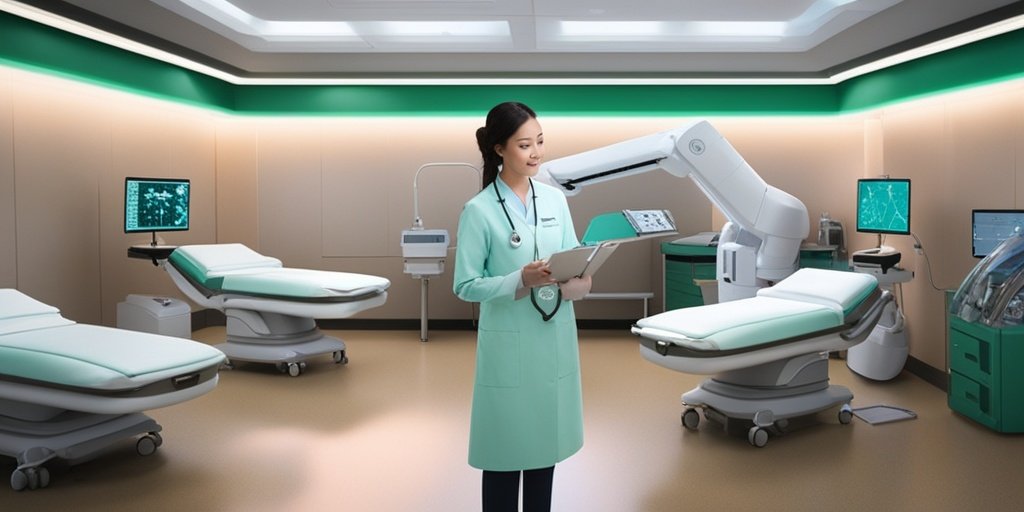⚡ Quick Summary
This article examines the transformative role of artificial intelligence (AI) and large language models (LLMs) in pediatric surgery, highlighting their impact on preoperative, intraoperative, and postoperative care. The findings suggest that AI can enhance surgical precision and improve medical education, while also addressing ethical and privacy concerns.
🔍 Key Details
- 📊 Focus: Impact of AI and LLMs on pediatric surgery
- 🧩 Areas of application: Preoperative, intraoperative, and postoperative care
- ⚙️ Technologies discussed: ChatGPT, GEMINI
- 🏆 Key benefits: Enhanced surgical precision, personalized care strategies
- 🔒 Challenges: Ethical issues, data privacy concerns, need for human oversight
🔑 Key Takeaways
- 🤖 AI enhances surgical precision and contributes to safer outcomes.
- 📚 LLMs can simplify complex medical terms for better patient communication.
- 👩⚕️ AI facilitates personalized care strategies throughout all surgical phases.
- 💡 AI’s role in medical education improves learning for healthcare professionals and students.
- ⚖️ Ethical considerations and data privacy are critical challenges to address.
- 🌟 Optimistic approach recommended for AI adaptation in pediatric surgery.

📚 Background
The integration of artificial intelligence in healthcare has been a topic of growing interest, particularly in specialized fields like pediatric surgery. As surgical techniques evolve, the need for enhanced precision and personalized care becomes increasingly important. AI and LLMs offer promising solutions to these challenges, potentially transforming the landscape of surgical practice and education.
🗒️ Study
The article explores the current state of AI and LLMs in pediatric surgery, focusing on their applications in various surgical phases. It discusses how these technologies can provide real-time decision support during surgeries and improve communication with patients and their families. The authors emphasize the importance of understanding both the benefits and the challenges associated with AI implementation.
📈 Results
The findings indicate that AI can significantly enhance surgical outcomes by providing real-time decision support and improving surgical accuracy. Additionally, LLMs have shown potential in creating educational materials that are easier for patients and families to understand, thereby improving communication and patient engagement.
🌍 Impact and Implications
The implications of this research are profound. By integrating AI into pediatric surgery, healthcare professionals can achieve greater surgical precision and personalized care, ultimately leading to improved patient outcomes. Furthermore, the advancements in medical education facilitated by LLMs can empower future healthcare providers with the knowledge and skills necessary to navigate complex medical scenarios.
🔮 Conclusion
The exploration of AI and LLMs in pediatric surgery reveals their transformative potential in enhancing surgical practices and medical education. While challenges such as ethical concerns and data privacy must be addressed, the overall outlook is optimistic. Continued research and careful adaptation of these technologies could lead to significant advancements in pediatric healthcare.
💬 Your comments
What are your thoughts on the integration of AI in pediatric surgery? We would love to hear your insights! 💬 Share your comments below or connect with us on social media:
Artificial intelligence and pediatric surgery: where are we?
Abstract
Here, we explore the transformative effects of artificial intelligence (AI) and large language models (LLMs), such as ChatGPT and GEMINI, on pediatric surgery, including preoperative, intraoperative, and postoperative care, as well as their influence on medical education and patient communication. We discuss the role of AI in enhancing surgical precision, facilitating personalized care strategies throughout all surgical phases, and improving learning for healthcare professionals and students. AI’s application in intraoperative settings, providing real-time decision support and augmenting surgical accuracy, underscores how AI can contribute to safer surgical outcomes. LLMs ability to explain medical terms and create easy-to-understand educational materials demonstrates its potential in medical education and patient communication. We also acknowledge the challenges of using AI, including ethical issues, data privacy concerns, and the imperative for human oversight. Despite these challenges, AI holds the potential to significantly enhance pediatric surgery, healthcare education, and patient care, and we recommend a careful but optimistic approach to its adaptation.
Author: [‘Miyake Y’, ‘Retrosi G’, ‘Keijzer R’]
Journal: Pediatr Surg Int
Citation: Miyake Y, et al. Artificial intelligence and pediatric surgery: where are we?. Artificial intelligence and pediatric surgery: where are we?. 2024; 41:19. doi: 10.1007/s00383-024-05921-8